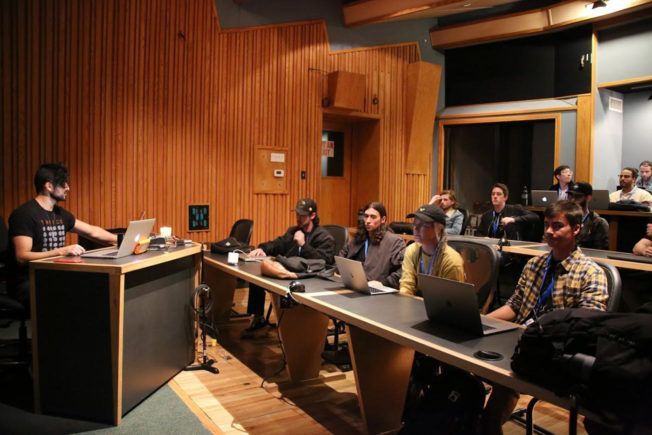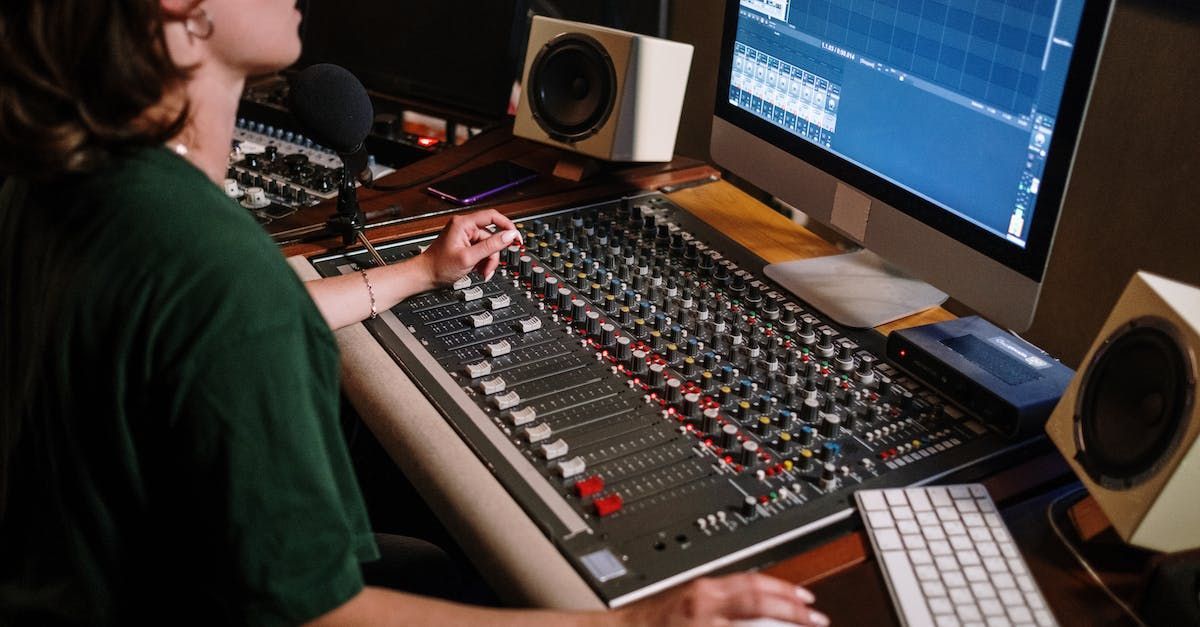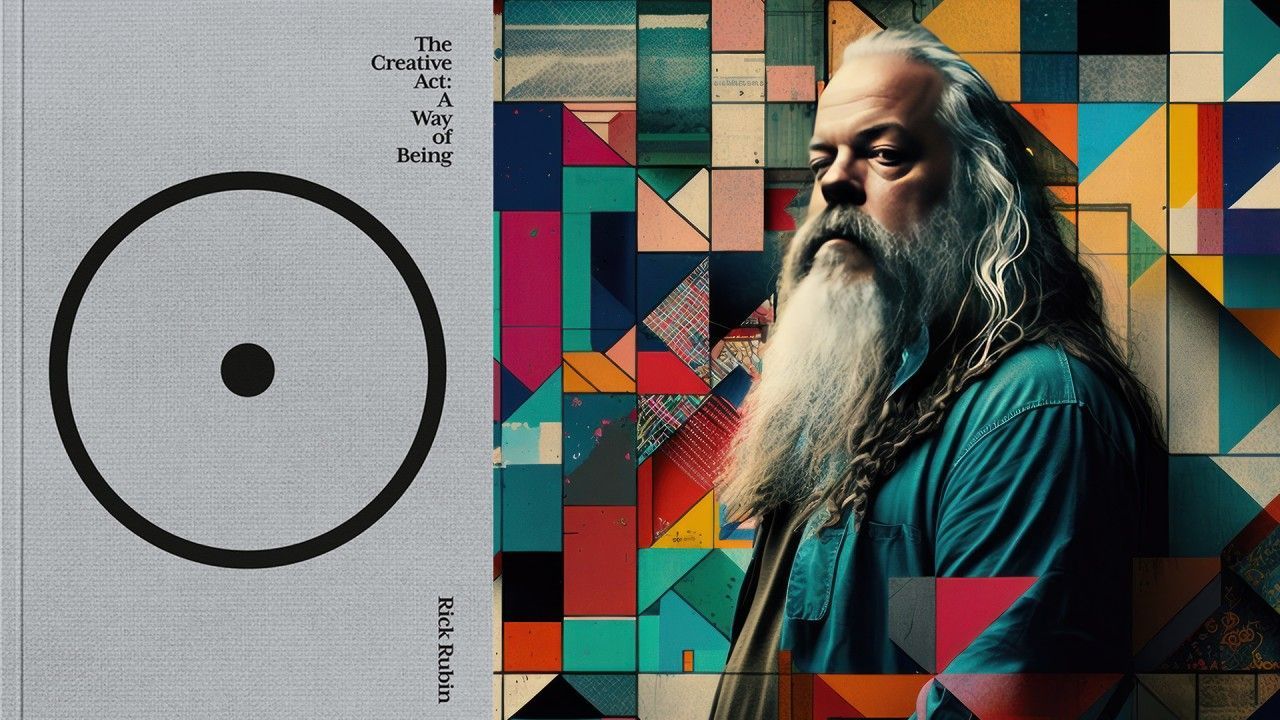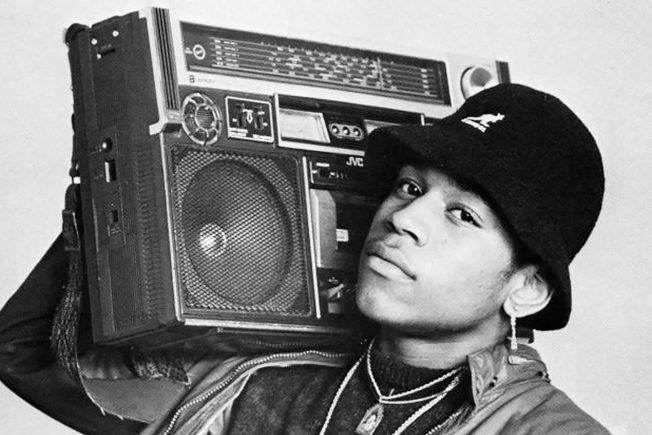What is the best way to learn music production? ICON graduate Bradley Marcus compares learning at a music production school vs. free online tutorials.

Formal Education vs. Self-Education
Are you interested in breaking into the music industry and becoming a music producer? Educating yourself is a crucial first step towards achieving those goals and improving your skills. However, those seeking to learn music production often find themselves at a crossroad. Should you attend a music production school or continue to self-study through free online resources like YouTube videos , forums, and music blogs?
Choosing how to learn music production depends on your ambitions, learning style, and budget. This guide compares the advantages and disadvantages of learning music production through structured learning at a school vs. self-learning with free online resources.
Let’s Talk Options
Most choices in our lives are inevitably ours. With music production education, the same holds true. There are various ways to learn music production. However, the two most common approaches are attending a music production school and watching online tutorials. Fortunately for you reading this, I’ve done both and will lay out the reality of each approach.
Self-Learning: YouTube/Online Tutorials
Who is teaching you? The Internet has created a vast world for us. We can type into a computer our problem, and with hope, find an answer. However, anyone and everyone can create that answer in the same online universe for all to read. This presents a problem when learning music production online because it’s hard to decipher who knows what they’re talking about and who doesn’t, especially for a beginner.
Why are they teaching you? Many people creating YouTube tutorials are not there to teach you the foundations of music production. Instead, they rather get you to click on their video. It’s common for people to lure you in with enticing content in hopes to get you to pay for more information. These clickbait videos will NOT help you build a foundation in music production. Instead, they might diverge you from learning the proper steps of music production. It’s often hard to find videos that offer legitimate information for free.
However, you may find something interesting and helpful online. Although, if you’re new to the game, you might not understand various lessons, especially when the information is random and scattered. This disorder can often lead you with more questions and perhaps more frustration.
How are they teaching you? The answer will depend on a person-to-person basis. Often, people creating online videos are not actual teachers or experienced music producers. It’s common to waste valuable time watching random, confusing videos.
The Advantages and Disadvantages of Self-Learning
Self-education is a learning method where you direct the learning process. You control what, when, and how to learn. This approach is a great way to enhance your learning experience while finding your personal style. Moreover, the vast availability of online resources makes self-education a viable learning method for many people.
YouTube/Online Tutorials Advantages
- Online tutorials are useful for learning a specific technique fast . They’re also great for finding a particular solution to a problem. For example, how to sidechain the kick and bass.
- There’s always new content uploaded . However, access to a vast amount of content can also be intimidating.
- There’s a lot of free content available . It’s easy for those on a budget to find free and helpful online resources.
- Experienced and professional music producers create many online tutorials.
- You don’t have to follow a curriculum . You have more time and freedom to learn a range of different techniques on your schedule.
- Informal learning resources online are ready and available on the go if you have a mobile device. You can watch tutorials anytime and anywhere.
YouTube/Online Tutorials Disadvantages
- Learning from online tutorials leaves holes in your music production knowledge . You randomly learn bits and pieces. There’s no structure or direction.
- Time wasted spending endless hours searching for both quality videos and quality knowledge.
- Time wasted going down the YouTube rabbit hole instead of applying what you learned . It’s crucial to implement the techniques and strategies you’re learning.
- Many online tutorials offer inadequate or incomplete information . Also, most tutorials are short and don’t go in-depth about the techniques and methods presented.
- The learning experience is incomplete and disorganized . Whereas, structured learning provides a complete learning experience that’s organized, comprehensive, and consistent.
- There’s a steep learning curve . It takes longer to reach a level where you’re releasing commercial-grade music, growing your brand, and achieving success.
- You don’t know who is teaching you . Many bedroom producer hopefuls with little music production experience create many online tutorials.
- There’s not an experienced instructor to ask questions or the opportunity to learn from other students.
- Some videos sell products or promote a personal agenda instead of offering quality knowledge.
- Your success or failure relies solely on your initiative and hard work to achieve results . You don’t have a mentor or classmates to motivate and push you.
Structured Learning: Online/In-Person Courses
Who is teaching you ? The people that create structured music production courses are true masters of their craft. They are experienced music producers who are confident enough in their knowledge to build an actual business.
Why are they teaching you? A team who takes the time to create a comprehensive curriculum are usually passionate professionals who truly love their craft. Typically, they have been doing this much longer than the average music producer. This means they have the experience and knowledge to figure out the best ways to teach you.
How are they teaching you? Structured courses are just that, a structured way to set you up for success. You learn the basics and fundamental knowledge while gaining valuable experience. For example, Icon Collective prepares students to become music producers, composers, performers, recording artists, professional DJs, and entrepreneurs in the music industry.
It’s also important to mention these courses offer something even more valuable than knowledge – a community of like-minded artists who love music. At Icon Collective, I learned as much outside of the classroom as in the classroom. For instance, they offer various resources and opportunities, including the chance to pick the brains of peers. Asking questions is an invaluable piece of learning music production. I can tell you there’s no easier way to learn something than having the ability to ask questions.
The Advantages and Disadvantages of Structured Learning
Music production schools provide an organized and carefully planned out method of learning. They offer structured programs conducted by passionate, qualified instructors who inspire students to achieve their creative goals. Through a structured curriculum, an aspiring artist can accelerate how thoroughly they gain the knowledge, skills, and experience to advance their music and career. Students exposure to various aspects of the music business also prepares them for the complexities and challenges of the music industry.
Although formal education is not always required. Music professionals have become successful without proper training from an accredited school. However, an intensive and structured curriculum will provide the strongest foundation for achieving your musical potential.
Music Production School Advantages
- The learning process focuses directly on the knowledge and skills needed to launch your career in the music industry . You will also develop your music production knowledge, technical proficiency, and creative expression at an accelerated pace.
- A structured curriculum . You learn a broad range of skills while gaining exposer to various aspects of the music industry. For example, you gain in-depth knowledge of music production, songwriting, sound design, music theory, mixing, mastering, keyboard techniques, studio techniques, music business, and more. A versatile education will also help you identify and develop your music production style and brand.
- One-on-one training with a professional mentor . You can learn from experts with experience in the music industry.
- A professional producer provides personalized feedback on your music. Receiving input and advice from industry professionals is a valuable resource which will help you develop and understand concepts faster.
- A music production school is a perfect place for making connections and building a robust network . Making it in the music industry requires networking and relationships with like-minded peers.
- You learn how to collaborate with other like-minded artists . Collaboration is a perfect opportunity to work with other artists, boost creativity, learn new techniques, and reach new fan bases.
- You’ll gain valuable real-world experience while you learn. Graduates will be better positioned to pursue a career in the music industry. For example, learning music business will prepare you for the complexities of music law and the music industry. You learn how to navigate contracts, manage royalties, protect your master recording rights, find music placement opportunities, understand the legal aspects of setting up a business, and more.
- You put the knowledge gained into practice . It’s essential to implement what you’re learning if you want to enhance your skills and overall experience.
- Access to high-end audio equipment and software. Practicing and learning on pro audio equipment is one of the best perks of attending a music production school.
- You learn how to overcome common creative blocks . You also learn how to develop a workflow which will help you work through problems and finish songs faster.
- Quality music production schools keep up-to-date with music industry trends , technology advancements, and modern production techniques.
- The overall learning experience challenges you to grow as a person and an artist beyond the scope of a musical career.
Music Production School Disadvantages
- Music production schools can be expensive . However, many ambitious students determined to make a career in the music industry justify the investment.
- There’s no job guarantee . Formal learning will prepare you to seek a career in the music industry. However, it’s up to you to build a successful career. It takes initiative, dedication, and determination to make music production a viable career path.
- Music production schools are for artists dedicated and willing to put in the hard work . Those serious about making a career in the music industry are more likely to benefit from formal learning than those who see music as a hobby.
Conclusion
Learning is an essential part of artist development. Improve your knowledge by combining structured learning and self-directed learning to develop the skills for a career in the music industry. Between these two methods of education, the rate at which you’ll learn music production will also skyrocket.
Both learning approaches have their advantages and disadvantages. It’s up to you to determine what path best meets your aspirations, level of motivation, and budget. Although, if you’re serious about making music production your profession, proper investment is a significant first step!

Turn your passion for music into a Profession: Learn more about our Music School Programs!
MORE ARTICLES FROM THE ICON BLOG

FIND YOUR SOUND, HONE YOUR CRAFT:
Are you ready to turn music into a career? ICON prepares students to become music producers, composers, performers, recording artists, professional DJs, and entrepreneurs in the entertainment industry. Click below to get information about our award-winning programs:

